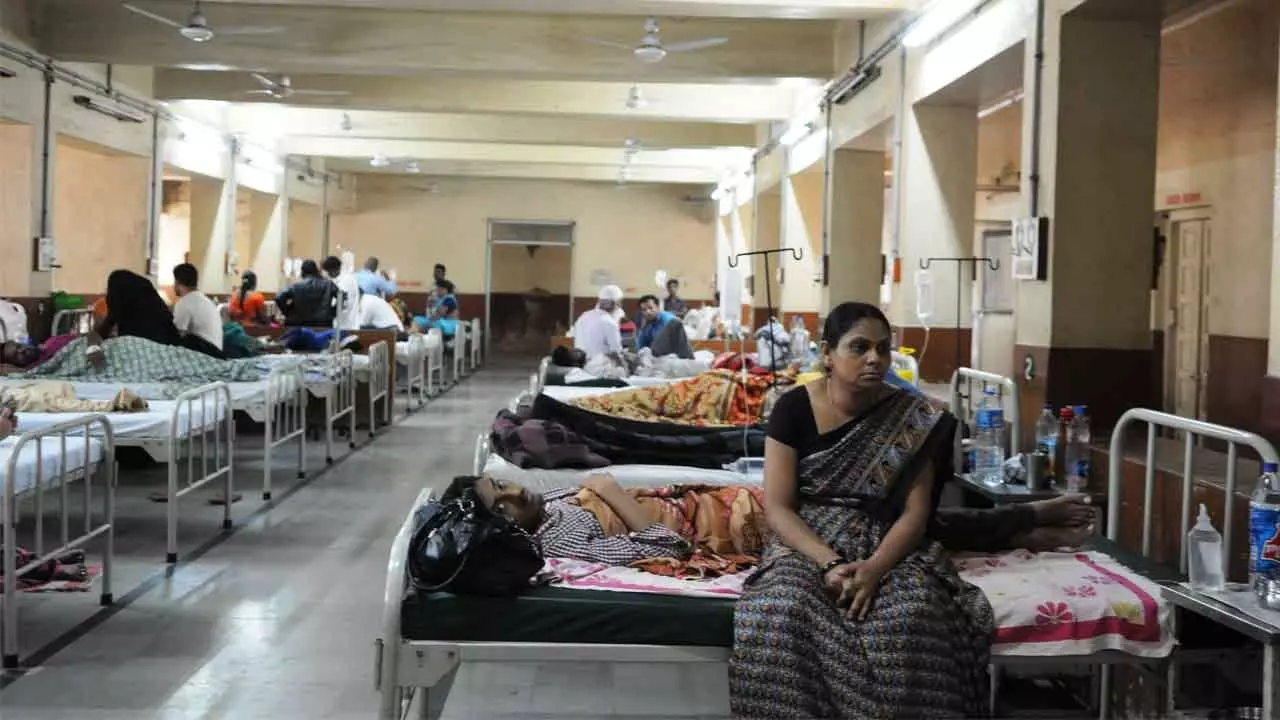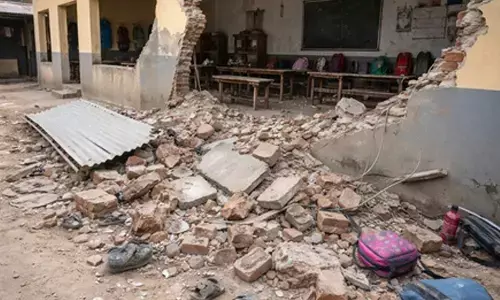Telangana State dances with dengue as cases see sharp spike

Hyderabad: Telangana has become a high transmission zone of dengue cases in the world as the State has reported the highest number of cases, according to the World Health Organisation (WHO).
According to the Strategic Preparedness and Response Plans (SPRP) issued by WHO, the agency areas in the State such as Asifabad, Nirmal, Bhadrachalam, and Bhupalpally, reported more cases. There were a large number of dengue cases in the State during this year. However, the cases were more in the year 2023 compared to the current year. The State had reported around 7,000 dengue cases this year.
Besides Telangana, Karnataka and Kerala have also reported a large number of cases. The WHO has observed that the effects of climate change partially explain the increase of dengue and other Aedes-borne infections in some areas. The high rainfall, humidity, and increasing temperatures favour the expansion and establishment of mosquito vector populations. Mosquitoes rapidly spread into new areas where they reproduce and transmit viruses such as dengue, zika, and chikungunya.
However, other transmission drivers include social factors such as unplanned urbanisation, population growth, and other globalisation-related dynamics. For these reasons, a multi-sectoral approach needs to be implemented to prevent and respond to outbreaks caused by dengue and other targeted Aedes-borne arboviruses.
The WHO has collaborated with multiple partners to update global suitability maps for Aedes-borne diseases, showing the predicted probability that these diseases will be present in a given location in 2023. Areas with a high probability of disease presence reflect model-estimated ideal conditions for the transmission of dengue and other arboviruses.
The IMA-TS Scientific Committee convener, Dr Kiran Madhala said that the problem in the State was not just limited to rural areas but also in urban areas like Hyderabad. He said that the reason for such a trend was because of various reasons like climate change, massive urbanisation, and the construction activity in the city all year. He stressed the need for the government to have coordination and collaboration among the stakeholders.








